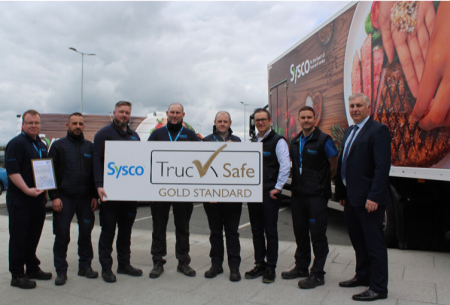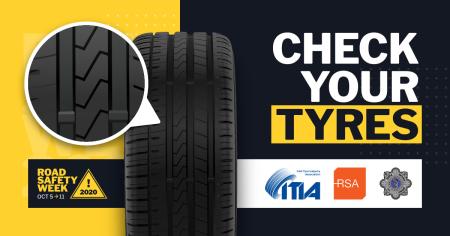Ireland

Thursday, June 2, 2022
Data collected by the Road Safety Authority showed that there had been a resurgence in drink driving in Ireland. A legacy of historical anti-drink driving advertising had reduced the behaviour, but a new cohort of younger people, who have never been exposed to it, were drinking and driving anew.
The RSA Education Manager was tasked with creating a campaign to help reduce this worrying trend against an audience—younger adult males—who considered themselves invincible and immune to road traffic collisions. No matter how strong the RSA’s messaging, there was still an issue in young males and peer pressure.
The key objective was to reduce the prospect of drink-driving amongst this younger cohort. We wanted to get under the audience’s skin, using a tech-appropriate medium, and make sure they had an experience they would never forget: one that would change how they think and importantly, how they behave.
One of the problems faced by every road safety body is that the consequences of drink driving are abstract to people that have never felt them. It’s hard to imagine losing your licence, ending up in prison, killing someone, or being left with permanent disabilities because most of us have never experienced these things. We can logically understand them, but we don’t feel them. For the first time, using Virtual Reality, we could create a shocking and deeply resonant immersive experience and make these consequences feel real.
The RSA Education Manager was tasked with creating a campaign to help reduce this worrying trend against an audience—younger adult males—who considered themselves invincible and immune to road traffic collisions. No matter how strong the RSA’s messaging, there was still an issue in young males and peer pressure.
The key objective was to reduce the prospect of drink-driving amongst this younger cohort. We wanted to get under the audience’s skin, using a tech-appropriate medium, and make sure they had an experience they would never forget: one that would change how they think and importantly, how they behave.
One of the problems faced by every road safety body is that the consequences of drink driving are abstract to people that have never felt them. It’s hard to imagine losing your licence, ending up in prison, killing someone, or being left with permanent disabilities because most of us have never experienced these things. We can logically understand them, but we don’t feel them. For the first time, using Virtual Reality, we could create a shocking and deeply resonant immersive experience and make these consequences feel real.

Thursday, June 2, 2022
FTA Ireland (FTAI) is a not for- profit membership trade association for the Irish freight, passenger, and logistics industries. Established in Ireland in 2010, we are wholly owned and governed by our members and act solely in advancing their best interests. FTAI covers all aspects of private and public freight transport, passenger transport and logistics supply chain, including road, rail, sea, and air. FTAI represents some of the largest freight and passenger operators in Ireland, with more than 25,000 employees and 10,000 commercial vehicles operating between them.
From our establishment, our members have demanded that FTA Ireland develop and implement an industry wide standard that facilitates a path to continuous operational compliance but also provides recognition for commercial fleet operators in the ‘Own Account’ and ‘Haulage’ sectors that meet their minimum legal operational obligations and from that endeavour to achieve sustainable operations through efficient fuel management and continuous professional development.
The TruckSafe standard was developed by industry through a working group for industry to support the recognition of commercial fleet operators that adhere to the minimum legal requirements in the following areas: fatigue, roadworthiness, driver competence, road traffic rules, safe and legal loads, dangerous goods, road haulage operator licensing, professional competence, sustainable operations, contractor and agency management. An objective was to raise the standards of professionalism of commercial heavy goods vehicle fleets, improve road safety standards and provide the recognition for those attaining the standard. this assists a cultural shift to compliant operations that influence procurement practices and has the added benefits of reducing the likelihood of accident and injury on our roads putting the safety of drivers and other road users to the fore. There is also increase regulatory requirements and this standard keeps pace with this through annual reviews and ensures that participants in this annual audit are mandated to keep abreast of the regulatory changes delivering sustained compliance. this in turn has the added benefit that compliance and safety become routine and are inherent in the organisations irrespective of personnel changes. FTA Irelands concentration on encouraging the highest operational compliance and professionalism within our membership through our TruckSafe & VanSafe auditing standards helps our members focus on the long-term sustainability of their business. In attaining sustainability businesses must have the basics right, ability to price services right, manage overheads and operational compliance and to meet legal their obligations. For road transport it is very important that they are road safe and meeting health and safety obligations. All of these add up to key ingredients for sustainable and profitable operations. Getting recognition for this good work has many benefits both for the operator and the industry they represent as it helps raise awareness of standards and good practices and develops more focused procurement practices and improved road safety.
From our establishment, our members have demanded that FTA Ireland develop and implement an industry wide standard that facilitates a path to continuous operational compliance but also provides recognition for commercial fleet operators in the ‘Own Account’ and ‘Haulage’ sectors that meet their minimum legal operational obligations and from that endeavour to achieve sustainable operations through efficient fuel management and continuous professional development.
The TruckSafe standard was developed by industry through a working group for industry to support the recognition of commercial fleet operators that adhere to the minimum legal requirements in the following areas: fatigue, roadworthiness, driver competence, road traffic rules, safe and legal loads, dangerous goods, road haulage operator licensing, professional competence, sustainable operations, contractor and agency management. An objective was to raise the standards of professionalism of commercial heavy goods vehicle fleets, improve road safety standards and provide the recognition for those attaining the standard. this assists a cultural shift to compliant operations that influence procurement practices and has the added benefits of reducing the likelihood of accident and injury on our roads putting the safety of drivers and other road users to the fore. There is also increase regulatory requirements and this standard keeps pace with this through annual reviews and ensures that participants in this annual audit are mandated to keep abreast of the regulatory changes delivering sustained compliance. this in turn has the added benefit that compliance and safety become routine and are inherent in the organisations irrespective of personnel changes. FTA Irelands concentration on encouraging the highest operational compliance and professionalism within our membership through our TruckSafe & VanSafe auditing standards helps our members focus on the long-term sustainability of their business. In attaining sustainability businesses must have the basics right, ability to price services right, manage overheads and operational compliance and to meet legal their obligations. For road transport it is very important that they are road safe and meeting health and safety obligations. All of these add up to key ingredients for sustainable and profitable operations. Getting recognition for this good work has many benefits both for the operator and the industry they represent as it helps raise awareness of standards and good practices and develops more focused procurement practices and improved road safety.

Tuesday, May 31, 2022
EU RISM Directive requires member states carry out proactive road safety inspections. While TII has a long history of developing standards and implementing safety programmes they were mainly based around patterns of historical collision data. This would be considered a retrospective approach. Since the adoption of the Road Infrastructure Safety Management (RISM) Directive, Transport Infrastructure Ireland (TII) has developed a new standard that sets out the processes around road safety inspections (RSI). The programmes, based on the standard, relies on a visual inspection along the route. Engineers versed in road design and with experience I road safety audits conduct these surveys. However, despite their expertise, early analysis of the data exposed some inconsistencies in how 'risk' as assigned to items noted in the RSI. The objective was to build in a way to achieve greater consistency around the proactive risk rating process. At one level the target audience were just the engineers involved in the inspection process but as we discussed the new insist from our data analysis it became obvious that other areas within our organisation could make use of our risk rating programme. Some of our results are now form part of a vehicle restrained course. See https://www.engineersireland.ie/listings/event/7353. In addition, TII have prepared a paper for the 2020 International Symposium on Highway Geometric Design (now postponed to 2022 due to COVID-19). This paper (https://www.tii.ie/technical-services/safety/road-safety/2020-ISHGD-Motorway-RSI-Ireland.pdf) discussed TII's proactive safety programme and the risk rating process on the entire motorway network in Ireland, circa 1,000 km, as we believed our work has a wider audience.

Tuesday, May 31, 2022
In Ireland, we love our phones but we know disconnecting is important. On average we spend 5 hours every day looking at our phones and 4/5 people admit to using their mobile phone while driving. Even though using a mobile phone behind the wheel when driving makes you 23 times more likely to have an accident, we still do it. So we want o change peoples behaviours. The Toyota FaceItDown app was built using technology to reinforce positive behaviour change by rewarding users for driving with their mobile phones facing down. The more kilometres a user drives with their phone facing down (and without ever touching it or picking it up) the more points they are awarded at the end of their journey. The gamification system of rewarding points for app usage was all built according to gamification best practice around one single behaviour/action; the act of facing down your phone while you're driving. Our objective of the app is to change peoples behaviours and make Irish roads safer for everyone. Target: All drivers, not just Toyota as we all share the road together. We know younger males are the worst offender and they remain our key target audience.

Thursday, May 26, 2022
Defective tyres are a serious risk to all road users. Road accidents and indeed tragedies can be avoided if vehicles are roadworthy and tyres are a major contributory factor in ensuring the road worthiness of a vehicle. The RSA Fatal Collisions 2008-2012 for Ireland report identified "the condition of tyres accounted for almost two thirds of the 101 vehicle factors cited as contributory to a collision". Defective tyres were very prevalent as a factor in single vehicle crashes (74%). Over half of the tyres on the 66 vehicles with defective tyres were excessively/dangerously worn, 11% were underinflated, some dangerously low. Of collisions that had tyre quality as a contributory factor, the majority of defective tyres were on cars (84%)- (6%) motorcycles. The Irish Tyre Industry Association is committed to playing our part addressing road safety challenges in the area of tyre safety by -Promoting tyre safety awareness through public campaigns. Offering our industry experts for guidance in this area to key stakeholders - Ensuring best in class standards in the tyre industry. Our objectives were: To conduct a public awareness campaign on tyre safety that would engage the public and encourage them to check their tyres. To highlight the dangers of driving with defective tyres. To educate the public on all aspects of tyre issues - tread depth, tyre pressure - looking for defects. To educate the public on their legal obligations in relation to safe tyres. To engage our members in a campaign of promoting tyre safety. Our primary audience is the general public - all those that are driving a vehicle either domestically or commercially. Our secondary audience is the membership of ITIA to promote tyre safety to the general public.
Operation Safe Home
Operation Safe Home was developed to help improve the system of children exiting the school at home time. Due to an increase in students attending the school and a rise in the number of road safety incidents occurring at this time an action plan was put into place .We currently have 497 pupils and expect to have over 500 pupils next Sept. The boy’s school is located within 300 metres of the girl’s school and has similar numbers. There is therefore a very high volume of traffic particularly in the evenings. The entrance to our school and the footpath are both very narrow.
